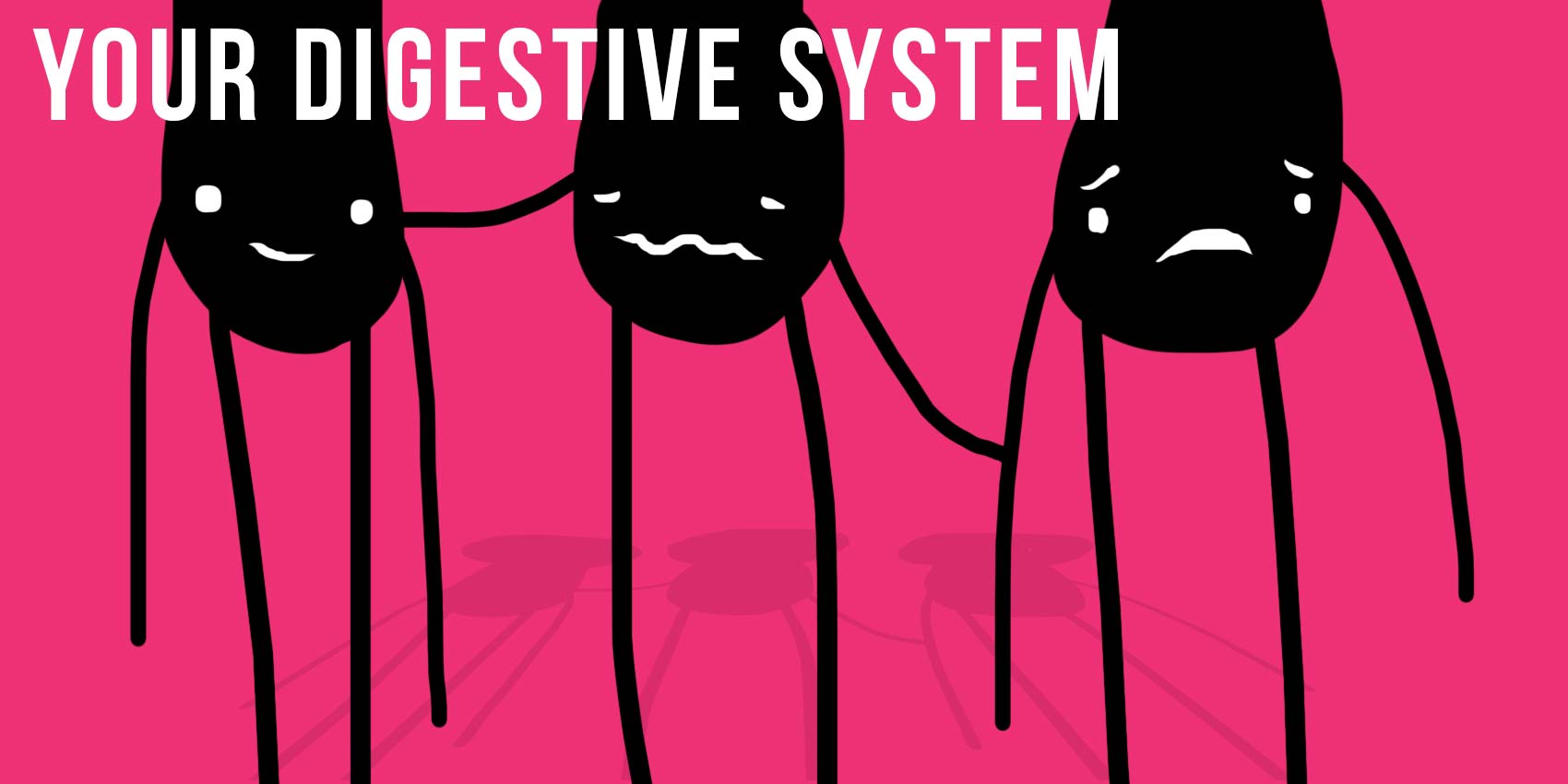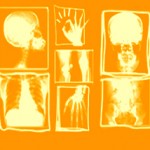09 Nov Your digestive system

Your Digestive System is made up of the mouth, esophagus, stomach, small and large intestines. This system breaks down and absorbs nutrients that are necessary for growth and maintenance.
Chew on this
Your body makes new cells to replace old, dead cells all the time. The food you eat is the material your body uses to make new cells. Hence, you are what you eat. And you are what you eat, ate. Chew on that!
One major function of your cells is that they are your army for when foreign invaders come along. If you eat junk, your army of new cells wouldn’t be fit for combat. Worse, imagine if you had a few days of sugar, fat and chemicals consumed rather than veggies, protein and vitamins. Now you are at school and there is this disgusting stomach flu going around. Is your body loaded with ammunition to combat such an evil enemy? Not likely. (See the nutrition posts.)
Food Journey 101: Food gets mashed in your mouth, slides down your esophagus and lands in your stomach where gastric juices work hard at breaking down your food so it can get to the small intestine. The small intestine is in charge of absorbing most of the nutrients from this mess (the large intestine absorbs a little more) and delivering said nutrients into the bloodstream. Your body is smart. It decides what to send into the bloodstream to nourish parts of your body or what to turn into waste and send on its way to the large intestine (bye-bye). BTW, it takes 3-4 hours to digest an average meal (meals higher in fat content take longer).

DID YOU KNOW? The food you eat combines with gastric juices to produce a lovely concoction called chyme. Chyme passes from the stomach to the small intestine in short spurts where it is more fully digested.
More to swallow
Your liver, pancreas and gall bladder are all organs that aid in the digestion of food.
Your liver is the biggest gland/organ in your body (yes, your skin is the largest organ outside of your body. So happy you are paying attention and thinking that you got one over on us. Keep trying.) It is located on your right side under your ribcage and it is divided into two lobes (one is 3x bigger than the other). It is one of the most complex organs in your body since it controls more than 500 chemical reactions and makes and stores substances vital to sustaining life and ensuring proper metabolism (remember that term, metabolism, from the last sub-post?). Your liver helps regulate your metabolism by secreting bile, which is a very important juice for digesting and absorbing the food you eat. (Your gall bladder is where that bile is stored.)
Your liver provides the following functions:
- it stores vitamins and chemicals the body needs to function and maintain cell health.
- it makes chemicals, like making specific proteins that help clot blood so that cut on your knee scabs over.
- it detoxifies the body (breaks down things like alcohol and drugs) and filters them to be released out of our system.
- it makes bile that specifically helps with our digestive process.
- it is the largest organ in your body. IN your body (yes, your skin is the largest in general.)
The liver is an organ because it’s responsible for all these actions and so much more. But it is also (and be prepared to be tested on this!) a gland because (as you now know from reading the post on the endocrine system) glands secrete chemicals that are used by other parts of the body.
(Source: https://www.medicinenet.com/liver_anatomy_and_function/article.htm#liver_definition_and_facts)

DID YOU KNOW? The total volume of fluid that is absorbed by the intestines every day amounts to about 9 liters.
Your pancreas (in addition to its function as an endocrine gland) produces three digestive enzymes that continue the digestion of proteins, sugars and fats.

Bile sounds vile.
My liver is a giver.


Fine, I’ll play along. My tummy is yummy.
I’ll say. Oh, my turn. Uh, Chyme doesn’t rhyme.





Post Question:
Describe your latest meal. Did you make a strong army of cells or a weak army? How do you know?
Answer the post question here
What's being said